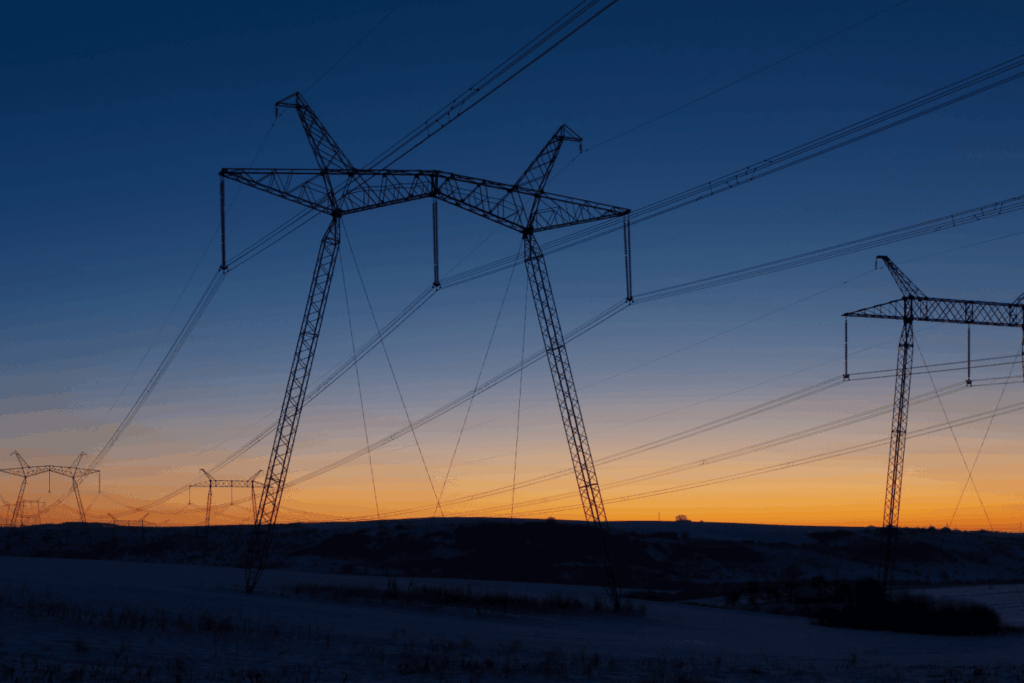
Featured Articles and Interviews
- Click below to read a specific category.
Read All
News / Articles | April 19, 2025 | The Hill
President Trump’s focus on energy has the potential to be the greatest legacy he can leave for the American people. The policies of Trump and the appointment of Chris Wright as secretary of Energy has put the United States in a decisive pro-energy position, focusing efforts on harnessing U.S. energy production and leveraging it into economic strength.
Research | January 27, 2025 | Common Sense Institute of Colorado
Colorado’s electricity sector is on the brink of rapid transformation. Driven by policy and propelled by new technologies and innovations, a large expansion to electricity generation is set to significantly reshape how much electricity Coloradans use, where their power comes from and, ultimately, how much they pay.
A recent report from the Colorado Energy Office (CEO), titled Pathways to Deep Decarbonization in Colorado’s Electric Sector by 2040 (referred to as the Pathways Report), estimates that achieving the state’s emission reduction goals will cost $108 billion through 2050. This figure reflects the investment required to more than triple Colorado’s electric generation and storage capacity—from 21,816 megawatts to 67,256 megawatts. Meeting these capacity goals will require adding 55,068 megawatts of new generation capacity (45% in storage and 41% in wind and solar) and retiring 8,669 megawatts of existing capacity (49% in natural gas and 48% in coal). The Pathways Report also explores six alternative scenarios aimed at achieving 100% carbon emission reduction. These scenarios carry additional costs, ranging from 20% to 42% above the baseline estimates, varying based upon the type of electricity resources being prioritized. Importantly, the report’s cost estimates do not include those of additional investments needed to expand transmission and distribution infrastructure.
News / Articles | January 1, 2025 | New York Post
A New York Democratic bill aimed at charging oil and gas companies for pollution could result in regressive costs for working families in the state, energy and economic experts tell Fox News Digital.
New York Gov. Kathy Hochul recently signed the Climate Change Superfund Act, a bill that seeks to charge polluters up to $75 billion for pollution dating from 2000 to 2018.
Research | December 19, 2024 | Common Sense Institute of Colorado
Colorado, like many states in the Rocky Mountains, is rich in natural resources. However, policies in Colorado focused on reducing CO2-emissions are increasingly dictating energy production, energy use, and energy prices.
Aggressive emissions-reduction requirements put in place by 2019 legislation require Colorado to reduce CO2 equivalent emissions by 80% in the power sector and 50% across all sectors against 2005 levels by 2030. The Administration has also released two policy “roadmap” reports on policies aimed at achieving these target reductions. The first was done during the height of the pandemic in 2021 and reflects the realities of the time. The second one was released in February 2024 and outlines aggressive policies to cut CO2 emissions but does not address grid and power reliability, major cost factors for aggressively reducing emissions, nor Colorado’s role in global CO2 emissions. It also does not address Colorado’s ability to compete with other states as the costs of heating and fueling homes, transportation, and manufacturing in Colorado are all underpinned by energy prices, access, and reliability.
News / Articles | December 5, 2024 | The Daily Signal
Prior to the Biden-Harris administration, electricity prices had been flat for a decade at around 13 cents per kilowatt-hour. They’re now at 18 cents per kWh—an increase of nearly 30% since 2020.
U.S. consumers are paying more for everything, especially electricity, as price increases ripple through the economy. Although food and housing inflation receive a lot of attention, a hidden cost of both home ownership and renting is rising electricity costs.
This is despite the fact that natural gas powers half of the U.S. grid and prices for it hit record lows this year.
News / Articles | December 4, 2024 | DV Journal
Trisha Curtis, the president and CEO of PetroNerds, says it’s time to stop fighting and start producing. “In the U.S., we need more energy, so it’s really about building more power generation capacity,” she said. “Then you can argue politically about what you’re going to fuel it with. Coal and natural gas are energy-dense, reliable baseload power sources that are not intermittent,” she said.
Curtis said that the United States has “more than enough” natural gas, noting the challenge there is in building the infrastructure to move the gas to power plants.
Coal, too, has to be part of the domestic energy strategy.
“Stop decommissioning coal,” she said. “You dig it out of the ground, put it next to a power plant, and use it when you need it. Wind and solar aren’t going to cut it — there’s not a lot of power density.”
Commentary | December 4, 2024 | My Journal Courier
Energy groups and advocates described President-elect Donald Trump’s selection of Liberty Energy CEO Chris Wright as energy secretary as a return to normality for an agency that, under the Biden administration, has been more of an obstacle than an ally.
News / Articles | September 3, 2024 | Real Clear Energy
With the 2024 presidential election looming, energy and energy prices are in the news thanks to continually high gasoline prices (resulting from high oil prices) and overall inflation. As Americans look to the country’s future and policies that should take center stage in the next White House, there are a lot of reasons to support American energy producers and domestic oil and gas production.
Publications | September 3, 2024 | Oxford Institute for Energy Studies Quarterly Report “Forum” | Published in the September 2024 Issue
The resiliency of US shale continues to confound skeptics. Despite fewer rigs drilling and fewer wells drilled,
US oil production hit 13 million barrels per day (mbd) in July of 2023 and remained above 13 mbd for the last five months of 2023. These production levels, 12.97 mbd on average for full year 2023, are above the pre-Covid record highs of 2019.

Podcast | March 15, 2021 | The Crude Life Morning Show
Trisha Curtis is the President and CEO of Denver based oil and gas advisory firm, PetroNerds. Trisha took some time to talk about her experience and knowledge in the industry and the amount of information she shares is vast.

Around the World and Back to the DJ
PetroNerds presented at the Colorado Oil and Gas Association’s annual Energy Summit on August 21st, 2018. Trisha Curtis’ presentation highlighted global oil market trends and

Hedging Haircuts and Big Basis Moves
We just updated HedgeAware for the latest data reported by E&Ps for Q1 2018. This piece summarizes the more notable trends and observations on E&P

DUG Rockies and EPRINC Presentations
PetroNerds presented at the DUG Hart Energy Rockies conference last week in Denver. Trisha Curtis discussed crude oil prices and their impact on Rockies region
See How PetroNerds Can Help You Today
Learn why the best organizations work with PetroNerds to enhance their knowledge and capabilities.
Schedule A Meeting

Subscribe to stay informed!
The PetroNerds Podcast is the only podcast that has expertise in US shale, the global energy market and the economy.
Subscribe to receive weekly updates on new episodes.
Request a Case Study
See how PetroNerds clients succeed through collaborations in proprietary data, expert analysis, and solving critical challenges.










